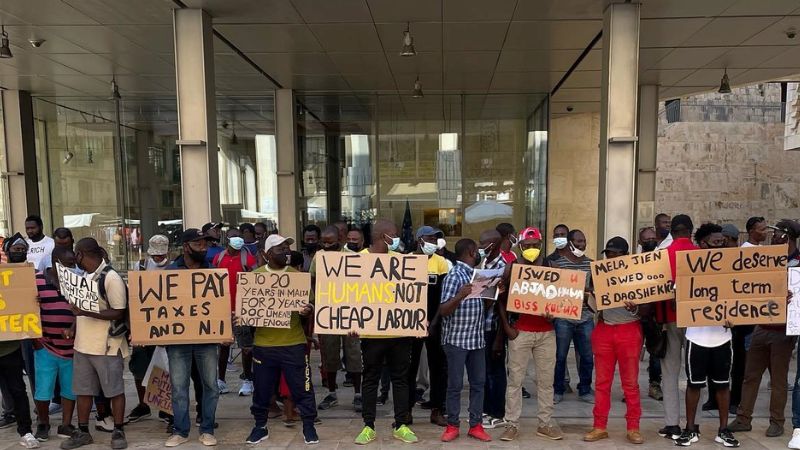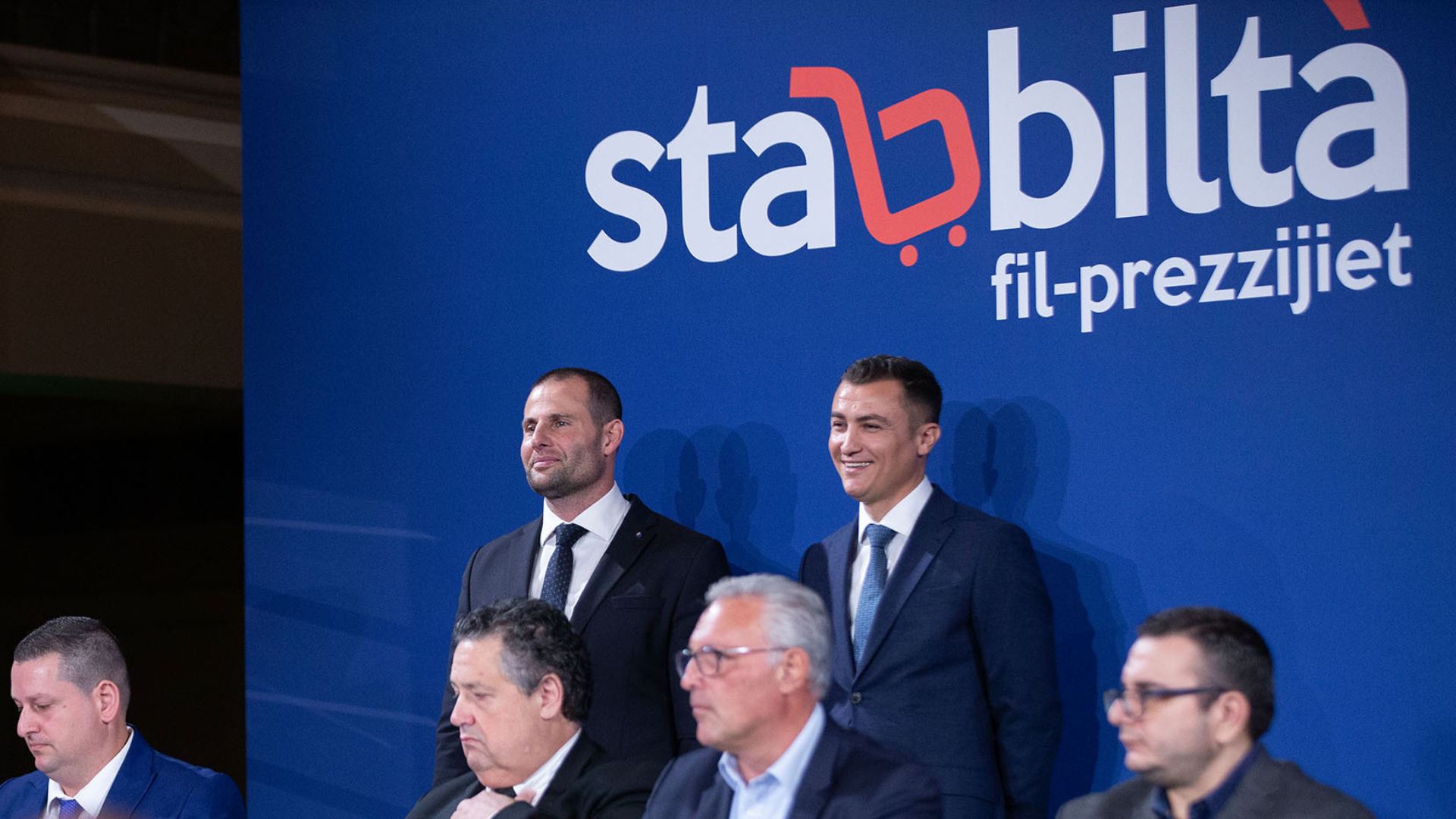Aqra dan l-artiklu bil-Malti.
Malta granted a record 38,000 permits to third-country nationals (TCNs) in 2022 as a part of a government strategy to base long-term economic growth on increasing the population, which has recently been reversed over the sudden realisation it was unsustainable.
Data from Eurostat shows that Malta issued 71 permits per 1,000 inhabitants last year, ten times higher than the EU average of seven per 1,000 during the same period.
Like most other European countries, Malta is grappling with a shortage of workers in various sectors, particularly in hospitality and manual labour. But as one of Europe’s smallest nations, the influx of EU and non-EU workers has resulted in infrastructural challenges, including traffic, pollution, and electricity blackouts during the summer months.
It has also left residents feeling their quality of life is suffering, reflected in public surveys and political polls.
Also of concern are multiple reports of abuse and exploitation of TCNs. These include low or illegal salaries, irregular working hours, a lack of rights and recourse, and hefty ‘fees’ levied against them by unregulated ’employment’ agencies, some of which are outright scams.
In 2013, when Labour returned to power, the number of TCN permits issued by the authorities hovered around 6,000 a year. Numbers shot up, surpassing 10,000 by 2017, with thousands added yearly until the COVID-19 pandemic began at the end of 2019.
Following a two-year lull, when thousands of TCNs left the country as the economy was put on hold, in 2022, an unprecedented record of 37,851 permits were issued.
It is estimated that more than 100,000 people in Malta’s workforce now consist of foreigners, mainly TCNs from Asia, Africa, and non-EU European countries such as Albania and Serbia.
But as problems related to overcrowding and a lack of infrastructure to support population growth continue to bite, The Shift reported how Prime Minister Robert Abela hit the panic button and ordered ministers to try to devise solutions to reduce the number of permits issued.
The current situation
As a result of the government’s approach to foreign labour, a new sector of the economy quickly emerged.
Scores of companies, primarily one-person shows, started taking advantage of the artificially increased demand by recruiting TCNs and ‘outsourcing’ them out to Maltese employers, including the government and its agencies.
While on paper, the workers got the minimum wage, in many cases, they received far less as the agencies took a cut or percentage of their salary.
Other cases of abuse include agents asking for thousands of euros in fees from each worker and a lack of adherence to local labour laws.
Just a few days ago, as pressure on the government to intervene increased, a Maltese resident was arraigned in court accused of bringing 280 citizens from India to the country even though there was no job for them, despite promises.
To be brought to Malta and start their new job, they were informed they had to pay €4,000 in commission. Despite red flags, Identity Malta (now Identita’) still issued the permits.
But despite continuing reports of abuse from companies and ’employment agencies’, the government is yet to regulate the sector.
“It has been evident for some time that the situation has got completely out of hand. It’s a jungle out there,” a human resources industry source told The Shift.
“While few companies, mostly large ones, try to do things ethically and charge no fees, many ‘cowboys’ were allowed into the market with no oversight whatsoever,” one added.
Recognising the need for foreign workers, especially since the government and its agencies absorbed local unskilled workforce during the past years through jobs-for-votes schemes, industry sources insisted that rules must be implemented quickly.
Amid negative polls and a general displeasure among the public with how things are going, Prime Minister Robert Abela announced that temping agencies would be regulated soon, as would the number of residents allowed to live together in rented apartments.
Rules on the latter already exist. However, the government, through the Housing Authority and other agencies, never enforced them, resulting in apartments being used to accommodate dozens of people.
The government recently announced a new skills card requirement for TCNs in the tourism industry, costing €575.
While the latter is considered to be a new barrier for TCNs, adding to their already high expenses to come and work in Malta, the Malta Hotels and Restaurants Association (MHRA) has already dubbed this initiative “a very quickly developed idea” and said that its introduction in January is not feasible.
According to Finance Minister Clyde Caruana, Malta will need a population of 800,000 by 2040. Currently, the Maltese population is around 535,000.













Modern Day Slavery, condoned and accepted by a Mafia State “Government” to maximise profits and placate business votes.
once you can pay a lawyer, even if you cannot afford it, the permit will be issued. Charges range between Euro 600 and one thousand. Shame on some of these irresponsible lawyers. GREED AND CORRUPTION is the name of the game. Mafia rules.
About three years ago Robert Abela declared that the country is full up. Three years later, he is still busy giving permits to foreigners by the thousands.
Dr Robert Abela the solution to the problem is easy, go to Brussels and ask the EU Commission to apply the EU’S Principal of Proportionality law on Malta.
That law would BAN all foreigners from buying property in Malta, which in turn would stop the building industry and reduce the number of foreigners working in Malta.
Also that law would oblige all foreign workers to leave the island as soon as their work contract is terminated.
Dr Robert Abela the EU’S Principal of Proportionality law must have been applied in Malta’s treaty on the day of Malta’s entry in the EU.